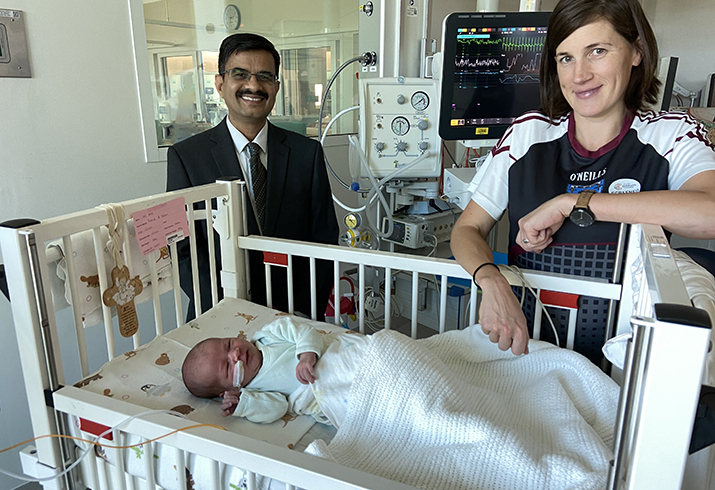Newborn babies help unlock important insights into gut health

Lead author and Consultant Neonatologist in the Neonatal Intensive Care Unit (NICU) PCH, Dr Shripada Rao compared the gut bacteria of a group of healthy babies born at King Edward Memorial Hospital to another group of babies with gastrointestinal (GI) surgical conditions who were managed in the NICU at PCH.
Comparisons between the two groups were made by analysing stool samples from the babies. The first stool samples were collected soon after birth and the second samples were collected between 10 and 14 days of their life.
The study found that during the course of their stay in the NICU, babies with surgical conditions develop more harmful bacteria and lesser amounts of beneficial bacteria in their gut compared to the healthy group of babies.
"The findings are significant because they help us understand why these babies often suffer from adverse health following their surgery such as infections and have difficulties in tolerating milk feeds," Dr Rao said.
The research findings have paved the way for a pilot study to investigate whether probiotics for babies with surgical conditions can help improve their gut bacteria and promote better long-term health as they grow.
Dr Rao, who is also an adjunct A/Professor in The University of Western Australia’s (UWA) Medical School said the babies with GI surgical conditions were chosen for this study because their gut was known to be delicate and sensitive to feeding.
"I’m delighted our research will add to greater understanding of how probiotics could be used in the future to reduce the risk of infections in babies with surgical conditions.
"I hope longer term, our work will help these babies recover faster from their surgery and decrease the amount of time they need to spend in the NICU which would ease stress for their parents," Dr Rao said.
The study was conducted in collaboration with the Department of Paediatric Surgery at Perth Children’s Hospital, Centre for Neonatal Research and Education at UWA, Centre for Marine Science and Innovation at the University of New South Wales, PathWest Laboratory Medicine and the School of Chemical and Biomedical Engineering, Nanyang Technological University, Singapore.
This study was funded by the Perth Children’s Hospital Foundation and the Centre for Neonatal Research and Education.
Perth Children’s Hospital Foundation CEO Carrick Robinson said this is an exemplary study of the impact being made to improve the health of WA children.
"We’re proud to be funding some of the finest doctors and research in Australia to improve outcomes for our littlest lives. By improving gut health and reducing feeding complications, these babies get to go home sooner and go on to lead healthier, happier lives."
The Foundation is the official and largest funder of the Perth Children’s Hospital and the wider Child and Adolescent Health Service after government, committing $83 million over the past 24 years, with a further $25 million committed over the next five years.
The published results can be read here.
Image | Dr Shripada Rao (pictured left) with Fiona Reale and her baby daughter Hali who was recovering from surgery in the Perth Children’s Hospital Neonatal Intensive Care Unit.

